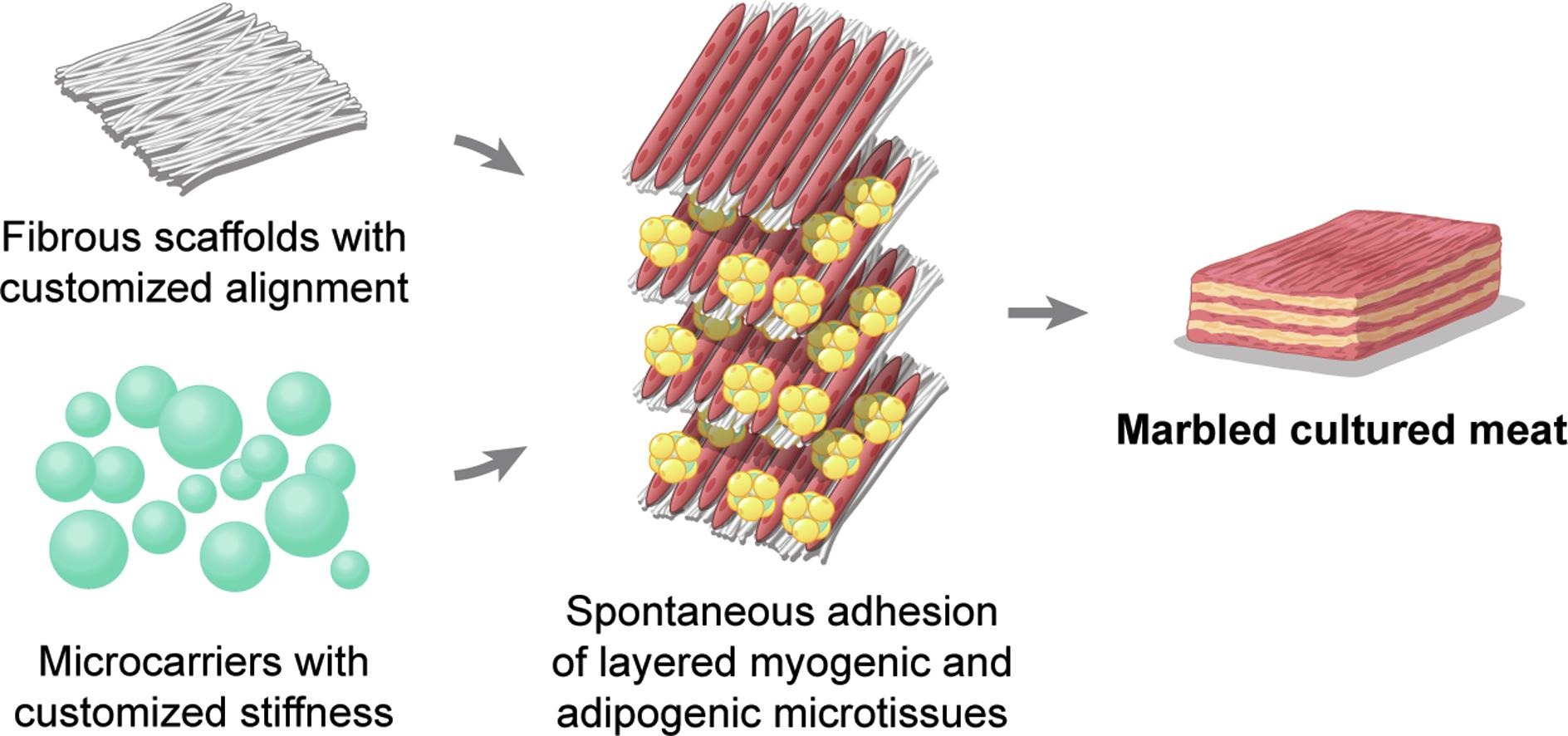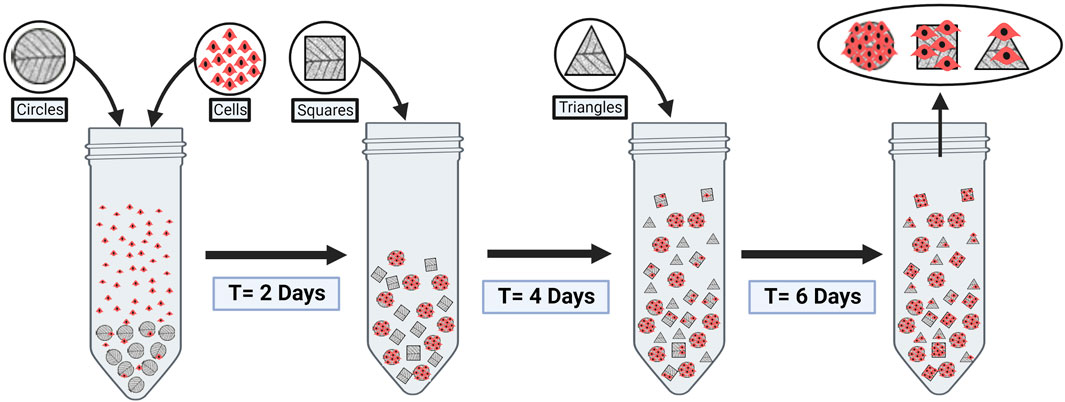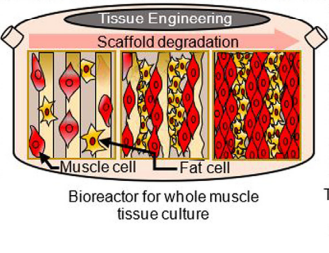- Overview
- Summary
- Funding
- Cite This Publication
Overview
Who: Santiago Campuzano and Andrew E. Pelling
Published: May 17, 2019
Where: Frontiers in Sustainable Food System
Key Takeaway: These three animal-free biomaterials could have many benefits as scaffolding for cultured meat.
Research Topics:
Summary
In this review, Santiago Campuzano et al. present three animal-free scaffolds that could be used to grow cultured meat: cellulose, chitin/chitosan, and recombinant collagen. First, the authors look at decellularized plant tissue as a scaffold, detailing its wide array of varying biochemical, topographical and mechanical properties. They then outline the many desirable qualities of fungal chitosan, including synergistic bactericidal effects and improved cell-matrix interaction. Finally they review recombinant collagen as a scaffold, which has the potential to better recapitulate the extracellular matrix. Campuzano et al. offer an overview of three promising biomaterials for scaffolding of cultured meat, while encouraging the reader to learn more about the challenges and noting that scale-up of these techniques is still uncertain.
Written by Nick Johnson
Cite This Publication
Campuzano, S., & Pelling, A. E. (2019). Scaffolds for 3D Cell Culture and Cellular Agriculture Applications Derived From Non-animal Sources. Frontiers in Sustainable Food Systems, 3, 38. https://doi.org/10.3389/fsufs.2019.00038
You Might Also Like...

Engineering multicomponent tissue by spontaneous adhesion of myogenic and adipogenic microtissues cultured with customized scaffolds
N. Stephanie Kawecki, Sam C.P. Norris, Yixuan Xu, Yifan Wu, Ashton R. Davis, Ester Fridman, Kathleen K. Chen, Rachelle H. Crosbie, Andrea J. Garmyn, Song Li, Thomas G. Mason, Amy C. Rowat

Repurposing agricultural waste as low-cost cultured meat scaffolds
Luke R. Perreault, Richard Thyden, Jack Kloster, Jordan D. Jones, Jordan Nunes, Andriana A. Patmanidis, David Reddig, Tanja Dominko, Glenn R. Gaudette

Enzymatic degradation and ageing of additively manufactured soy-based scaffolds for cell-cultured meat
A. Garrett, K.L.M. Avegnon, L. Delbreilh, J. Segurola, N. Delpouve, M.P. Sealy





